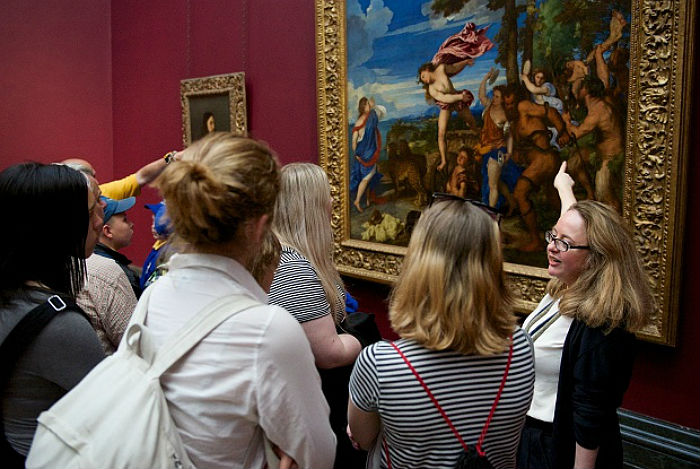Is Michael Gove right to scrap Art History A-level? In The Middle takes a look at the debate…
FOR
The axing of the Art History A-level has caused quite a stir, with some slamming Michael Gove for being “narrow-minded” and “short-sighted”. Despite studying an arts subject myself, I completely understand why Gove has made this decision.
It is a well-known fact that budgeting isn’t always easy, let alone fair. Cuts have to be made in order to balance our economy and that’s just the way it is. Some believe that Gove is downplaying the importance of arts subjects, but if we put budgeting into the context of education it makes logical sense to axe the weaker subjects in favour of more academic subjects.
‘Statistically, it has been proven that those who study “soft” subjects at university struggle to gain full-time employment after graduating. Employers don’t seek out those who have an extensive knowledge of the History of Art.’
Statistically, it has been proven that those who study “soft” subjects at university struggle to gain full-time employment after graduating. Employers don’t seek out those who have an extensive knowledge of the History of Art as they do those who’ve had actual work life experiences. It would be beneficial for young people to have more funding placed into vocational qualifications and apprenticeships over an A-level that is, to put it frankly, worthless in terms of practical skill.
There is an increasing need for trained professionals and, unfortunately, humanities subjects just don’t contribute to the working world in the same way more scientific careers do. The scrapping of the Art History A-level shouldn’t be viewed as an attack on all arts subjects but as a strategic move from Gove. Besides, an A-level in Art History is not required to study the subject at university, so those with the desire to do so can still pursue their interests; just outside of their schooling.
AGAINST
Pursuing a career in the arts sadly often comes with the assumption that your chosen path will lead to unemployment. My own personal Art A level class contained few students, as many were discouraged on these economic grounds. Instead, subjects like Business and Economics were seen as ‘correct’ subjects to take. By removing Art History from the A Level curriculum the stigma surrounding the arts has now been solidified by the Conservative government.
My issue lies primarily in what the removal of the subject symbolises and the repercussions it will have. To deem it a ‘soft’ subject decries all creative subjects as ‘soft’, and with the increase in business schools around the UK, it brings into question the future of creative subjects and industries.
‘To deem it a ‘soft’ subject decries all creative subjects as ‘soft’, and with the increase in business schools around the UK, it brings into question the future of creative subjects and industries.’
To understand the value of studying Art History, we must consider the role art has played throughout the ages: that of reflecting, documenting and, most importantly, challenging the period from which it originates. To remove the study of Art History, one loses this unique historical relationship, and in the future, young students will not want to study Art History at degree level, if it is not viewed as a worthy A level.
As an Art History and Fine art student, I am most concerned about how it will affect the reputation of creative subjects in working class areas. Children from low income backgrounds will be even more discouraged to pursue a future in an area now labelled ‘soft’. Art is more than a subject of study, it is a way of life, and a way of life is something that should never be oppressed or discouraged.
Adina Rees and Hannah Marsh
(Image courtesy of Quentin Newark: The Art Newspaper)

